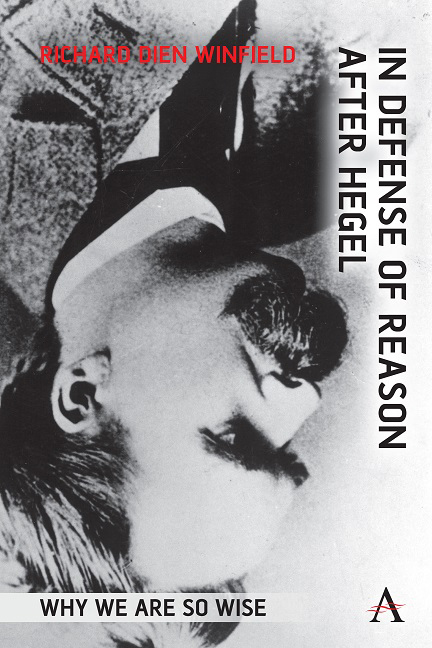Book contents
- Frontmatter
- Contents
- Acknowledgments
- Introduction
- 1 Why We Are So Wise: Hegelian Reflections on whether Reason Can Be Enhanced
- 2 Self-Determination in Logic and Reality
- 3 Hegel’s Overcoming of the Overcoming of Metaphysics
- 4 On Contradiction: Hegel versus Aristotle, Sextus Empiricus, and Kant
- 5 Overcoming Actuality: How Hegel Frees Us from the Prison of Modality
- 6 Time and Reason
- 7 Hegel and the Problem of Consciousness
- 8 Hegel and the Origin of Language
- 9 The Logic of Right
- 10 A Dream Deferred: From the US Constitution to the Universal Declaration of Human Rights
- 11 World Spirit on the Campaign Trail in Georgia: Can the Philosophy of Right Be a Guide to Social Reform?
- 12 The Classical Nude and the Limits of Sculpture
- Bibliography
- Index
5 - Overcoming Actuality: How Hegel Frees Us from the Prison of Modality
Published online by Cambridge University Press: 26 May 2022
- Frontmatter
- Contents
- Acknowledgments
- Introduction
- 1 Why We Are So Wise: Hegelian Reflections on whether Reason Can Be Enhanced
- 2 Self-Determination in Logic and Reality
- 3 Hegel’s Overcoming of the Overcoming of Metaphysics
- 4 On Contradiction: Hegel versus Aristotle, Sextus Empiricus, and Kant
- 5 Overcoming Actuality: How Hegel Frees Us from the Prison of Modality
- 6 Time and Reason
- 7 Hegel and the Problem of Consciousness
- 8 Hegel and the Origin of Language
- 9 The Logic of Right
- 10 A Dream Deferred: From the US Constitution to the Universal Declaration of Human Rights
- 11 World Spirit on the Campaign Trail in Georgia: Can the Philosophy of Right Be a Guide to Social Reform?
- 12 The Classical Nude and the Limits of Sculpture
- Bibliography
- Index
Summary
The Prison of Actuality
Since the rise of early modern Western philosophy, the modal categories of actuality have reigned supreme over almost all the philosophical academy. Possibility, actuality, and necessity have become the encompassing framework of the world most thinkers purport to be able to know. Imprisoned in these three modalities, our universe has become inhospitable to life, right, beauty, and reason, for none of these can fit the chains of necessity that actuality imposes.
Only one thinker has put actuality in its proper place. He has shown how its modal categories subvert themselves and usher in a different order of objectivity in which freedom, not necessity, has its place. This thinker is Hegel and if we follow him in thinking through the categories of actuality, we discover how reason can liberate itself from their chains.
Putting Actuality in Its Proper Place
It is crucial to avoid indiscriminately applying the category of actuality and thereby accepting it as an ultimate scaffold of thought and being. Hegel, like many other thinkers, carefully distinguishes between reality, existence, actuality, and objectivity.
So differentiated, reality signifies no more than the being of determinacy. In this sense, Descartes describes ideas having reality simply by being determinate, whether or not they have any mind-independent being. Reality, as merely the being of determinacy, is not an appearance, in which some essence reflects itself. Appearance itself incorporates reality in two respects: in the determinacy of its mediated show and in the determinacy of the essence it discloses. Reality falls within the categorial realm of what Hegel calls the Logic of Being, whose terms stand in contrast to other coeval factors, rather than being determined by some prior level of determinacy.
Existence, in contrast to reality, comprises a domain containing factors that stand in dependent interrelation with one another. Unlike reality, which simply is determinate, existence is a field of relativity, in which each entity conditions and is conditioned by its counterparts.
Actuality, unlike reality and existence, contains the condition of its own existence. Actuality operates, however, in a manner fundamentally different from how objectivity stands determined in its own right. Whereas actuality retains the conditioned contents of existence, objectivity is thoroughly determined in and through itself.
- Type
- Chapter
- Information
- In Defense of Reason after HegelWhy We Are So Wise, pp. 75 - 90Publisher: Anthem PressPrint publication year: 2022

